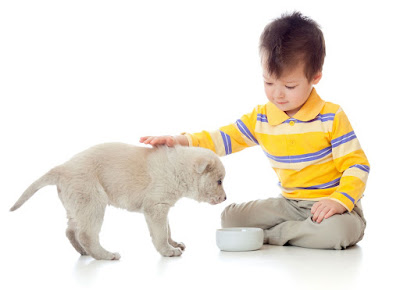Being a pet owner brings many rewards. However, along with the rewards, there will be some challenges. Taking the time to explore ways to face these challenges is well worth the effort.
Trying helpful and very doable tips is much better than randomly trying anything and everything, well-wishers eagerly share.
Here are some tips that have definitely gotten positives results, in the shortest amount of time:
Using newspapers, contrary to popular belief, will not miraculously ensure your puppy will be potty trained instinctively. Let's face it; dogs are not cats, so "anywhere", is a potential toilet. So if you have decided that you would like to use newspaper, as its designated toilet, ensure that your little puppy is placed within the vicinity of the "said" newspaper around the time it regularly pees and poops. This way your puppy will eventually associate the areas covered with newspapers, as its toilet, thus making your puppy training venture a success.
Routines play a huge part in establishing good puppy in house training exercises. Teaching your little puppy about acceptable toilet practices through a set of routines, will help. In the early months, puppies are usually only able to hold their pee, for an hour or so. Thus diligently placing your puppy near its "toilet" is a good way to introduce the idea of "it's time to pee or poop".
Rewards, both physical and vocal, are another way to ensure your puppy learns from the puppy training rules you are trying to set in place. Every time you praise your puppy, it will learn to ensure its toilet routines are according to the rules set by you. It's simply a matter of making your puppy understand the connection that, "going" in the right place, keeps everyone happy.
Feeding schedules, which are regulated, also help to ensure your puppy training efforts pay off. You should note when your puppy needs "to go", and ensure steps for "going" are followed. When the feeds are consistent in terms of timing, so will the poop sessions.
Close observation, creates successful puppy in house training. Keeping your puppy within sight and immediately placing it near its toilet when it shows signs of wanting to relieve itself, is one of the best tactics to use. This way you will definitely avoid unnecessary accidents and your puppy will eventually get the message.
When accidents happen, and they most definitely will, use a firm voice to stop your little puppy in the act. Immediately transfer your puppy to its toilet area and praise it when its "job" is completed.
When it comes to puppy training, patience is usually the most important ingredient you will have to arm yourself with. Sounds like going to war, right? Well in a way, it really is. Patience, coupled with smart tactical maneuvers, for puppy in house training is the first and most important mission to launch. If you are unable to "conquer" your puppy's peeing and pooping habits, right from the start, there it is definitely going to be, an all-out war.
Source:http://ezinearticles.com/?Tips-for-Puppy-Training&id=9182057












